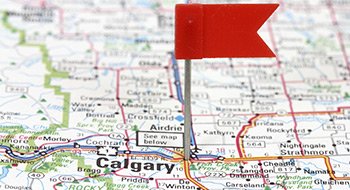
Alberta’s NDP government is facing accusations that the broad guidelines for its multibillion-dollar proposed carbon tax will change that tax from a climate-fighting levy into an all-purpose slush fund.
The province expects to collect about $3 billion per year from the tax as of 2018, with hikes in power and electricity bills and in the cost of gas at the pumps.
To date, the government has maintained the proposed tax is revenue-neutral, given it will be used in Alberta for incentives, rebates and green infrastructure. It will also be used for general revenues to pay down debt. The carbon tax is one of the pillars of Alberta’s new climate change strategy; it was unveiled Sunday by Premier Rachel Notley and Environment Minister Shannon Phillips.
Read: Pension funds need to consider climate change risks: Study
Greg Clark, Alberta Party Leader, says he’s broadly in favour of the strategy, but wants to know how the billions will be spent and allocated.
Wildrose Leader Brian Jean has a different view: he says Notley should concede that the carbon tax is a straight-up tax. “Not only is the NDP hurting our economy, but now they’ve decided to change the meaning of words,” Jean told the house during question period on Monday. “Albertans will pay $3 billion in new taxes.”
He adds, “When you’re talking about spending it on general government infrastructure, that is not revenue neutral. The government is misleading Albertans. We’re worried that that $3 billion will turn into a slush fund.”
The government’s climate change plan will see the province move to cap emissions from oilsands, as well as phase out coal-fired electricity plants and move to more enviro-friendly fuel sources over the next 15 years.
The carbon tax will help pay for the transition, and Phillips says the government will develop programs to help businesses and families make the shift to Alberta’s new economy. “We have pledged that we will ensure that this orderly transition is fair for workers, fair for communities, fair for consumers, [and] fair for the companies,” Phillips has told reporters.
Read: United Church votes to drop fossil fuels from investment portfolios
Under the carbon tax, fuel prices are to rise 4.7 cents a litre by 2017 and to 7.1 cents a litre by 2018. Further, household bills will rise by $320 a year for the average family in 2017 and will hit $470 by 2018.
So far, the government has promised rebates to about 60% of Albertans, particularly to those in the middle to lower-income bracket.
Can Canada become a climate-change champion?
Prime Minister Justin Trudeau and the country’s premiers have launched a rebranding campaign that’s aimed at transforming Canada’s image from an environmental pariah to a climate change champion.
At the end of the first ministers’ formal meeting in nearly seven years, the ministers professed a united front as they prepare for next week’s opening of the United Nations climate summit in Paris.
“We’ll demonstrate that we are serious about climate change,” Trudeau said following a four-hour working dinner with provincial and territorial leaders.
He said, “This means […] reducing carbon emissions, including through carbon pricing towards a climate resilient economy. It means collaborating with our provincial and territorial partners, supporting climate change efforts in developing countries and investing in sustainable economic prosperity.”
As expected, the meeting did not produce a new national target for reducing emissions or policies for achieving it. The gathering was aimed more at demonstrating a new tone in the run-up to the Paris summit. Within 90 days of the summit, Trudeau has promised to hold another first ministers conference to hammer out a national climate strategy.
At that point, the prime minister may find it harder to maintain a united front, as he gets into the work of setting a national target for emission reductions and mediating conflicting provincial demands over how to disperse the billions he’s promised in federal funding to help provinces reduce their carbon footprint.
Read: Responsible investing can lead to better returns
Saskatchewan Premier Brad Wall, who seemed less enthusiastic than his fellow first ministers about tackling climate change, signaled that he’ll fight to ensure the eventual plan doesn’t unduly hurt the energy industry on which his province’s economy depends.
“As we are meeting, there are literally tens of thousands of Canadians who have been laid off of their jobs in [the oil and gas] sector,” Wall says. “So as we prepare to present a constructive and national front to the world, we need to be mindful of that fact, we need to work hard to ensure that we’re doing no further harm to an industry that’s facing great difficulty.”
He added: “I don’t think those things are necessarily mutually exclusive.”
